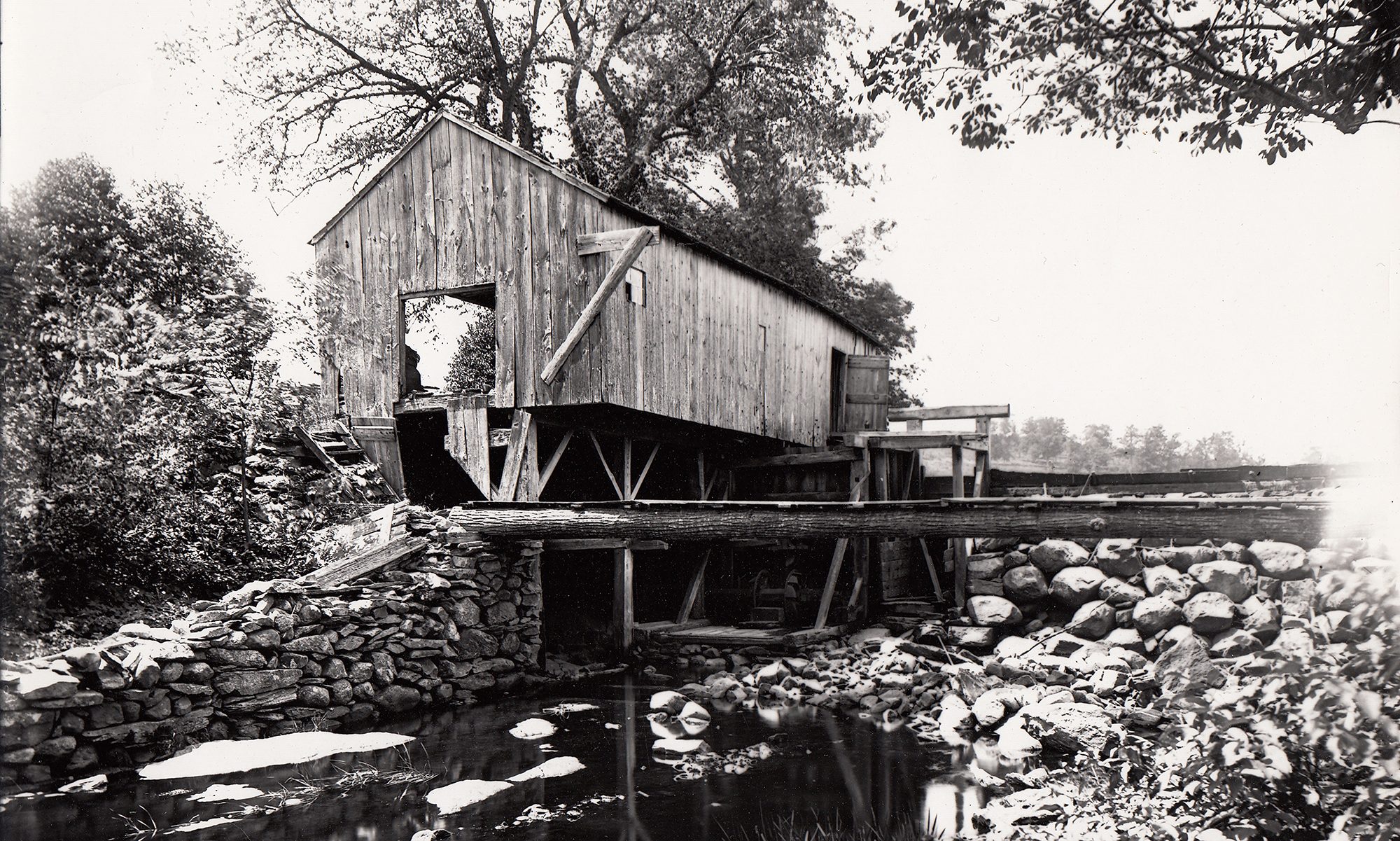[It seems hard to think of Southborough as a wild-west kind of town, but for a while from 1860s-1890s the area around the Cordaville mill was a pretty rough place. The Kelly family, Irish immigrants who came to work in the mills, had settled around Oregon road and soon were running a protection racket (your house might suddenly go up in flames unless you agreed to pay up; a bootlegging operation; a widely notorious whorehouse; and another, Chattanooga, where women were also available. Needless to say, “proper folk” were appalled, but the gang was entrenched and enjoyed the support — loyal or otherwise — of the locals. It wasn’t until the coming of the reservoir system that this changed: As part of the deal to take the land for the reservoirs, the city of Boston was forced to supply and pay for 5 police officials — the beginnings of the Southborough Police Department — and the end of the Kelley gang.
You can get some sense of the goings-on from this amusing article from the Westborough Chronotype dated Saturday Morning Jan 26, 1895, which was reprinted in the Boston Advertiser the next week. “License” by the way, is the right to sell liquor in a town. At the time, Southborough and the surrounding towns were ‘dry.’ Eds.]
•••••••
Cordaville is a village, lying partly in Hopkinton township, partly in Southborough, and partly in Ashland. Southborough is in Worcester County; the other two towns are in Middlesex County. The Kelly wine place is in Hopkinton; but it lies within 160 rods of the Southborough line and for this reason may be legally raided by officers of Worcester County.
The three towns have generally voted no license; and when license has received the popular vote Kelly has always been refused a license because of his reputation. “But men may come and men may go, but I go on forever.” License or no license, Kelly’s is always open.
All the king’s horses and all the king’s men can’t keep Kelly from selling gin. Middlesex has about 17 deputy sheriffs, Worcester 28; Hopkinton has 5 constables, Ashland 3, Southborough 6; Yet even with the State Police added the army isn’t enough to eject Kelly.

“Yes,” said Constable Tidsbury of Ashland, “no license was voted in all three towns, except Hopkinton, and there the vote was so close that the selectmen refused to sign any licenses; but for all that liquor is sold in all three places.”
Then he related the same tale as before, that if Hopkinton selectmen gave him authority he would proceed to raid the Kelly mansion.
Driving over to Southborough from Ashland, I asked my driver why it was that at the Central House, Ashland, it was necessary to go up stairs to get a drink. “Oh” he answered, “they’re ‘fraid to let the girls serve it at the dinner table ‘fraid they’ll drink it themselves. They’re of no count; they come over from Worcester County, them girls did.” (This illustrates the unhappy feeling between the citizens of the two counties in juxtaposition, and it is largely because of this feeling that the Kelly’s et al. are suffered to maintain themselves). “At our hotel,” my driver continued, “yer don’t have to go upstars. Matt Tierney does the biggest business, though. He’s wholesale as well as retail. He’s got bar’ls an’ bar’ls ‘er larger, ‘en whiskey, and he’s got a re’lar rowte through 5 ‘er 6 towns.”
“Why does the town vote no license and then allow liquor selling?”
“Oh, I guess there’s some sort of deal.”
The road leads through “Chattanooga.” The name is appropriate, for the place is evidently a battlefield. In some houses even the doors are gone; none have their windows entire. This is the habitat of the “hoboes” who labored on the water works, when they labored at all. Cordaville has a new lockup since “der gang” smashed the old one.
In the two counties of Middlesex and Worcester there is one brave officer of the law: Constable Dorr. For 35 years he has fought the Kelly gang. He it was who looked down the barrel of a revolver in the hand of desperate Jim Rafferty. Jim tried to prevent Mr. Dorr from making an arrest, but the old man said shoot away! I intend to arrest this man.” Jim fired, but by some miracle the bullet glanced along the side of the old hero’s head, and Jim didn’t got a chance to fire again! For this playful act on Jim’s part the court gave him 18 month’s vacation. The short sentence was doubtless due to his reputation as a man of war.
But even Mr. Dorr has declared a truce against the Kelly gang. Since the loss of all his property by fire last July he has been living with his daughter; his wife is an invalid and for the sake of his family the valiant and venerable old man has relinquished the war.
Since the burning of Mr. Dorr’s buildings and the attempted burning of the mills, (Mr. Wilson, the manager, is also an uncompromising enemy of the Kelly’s,) the gang is held in greater awe than ever. More than one who talked with me said; “Don’t print my name in the paper, I beg you, else we shall feel the vengeance of the Kelly!
I asked Selectmen Morse of Hopkinton why such a set of outlaws was allowed to remain in town. “We’ll we’ve raided them 15 or 16 times but we don’t seem to get anything. You see Mr. Chaflin, he’s chairman of the selectmen. He said he was going to drive them out.”
